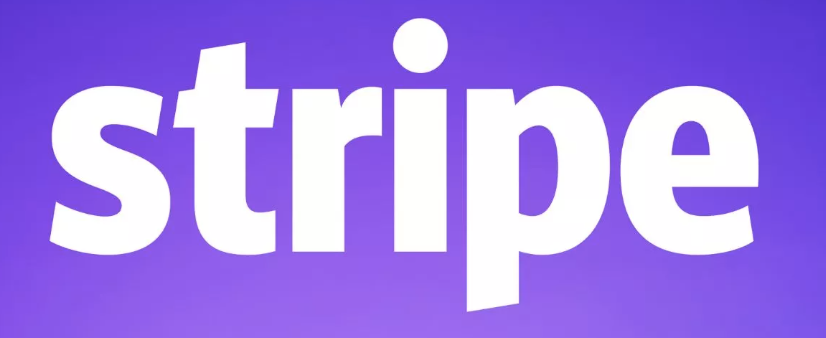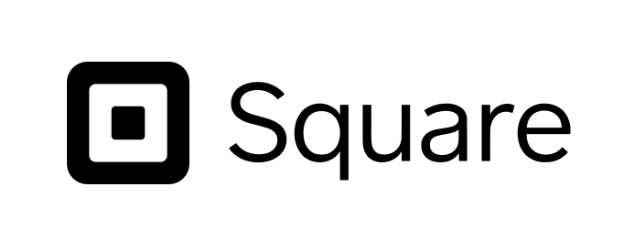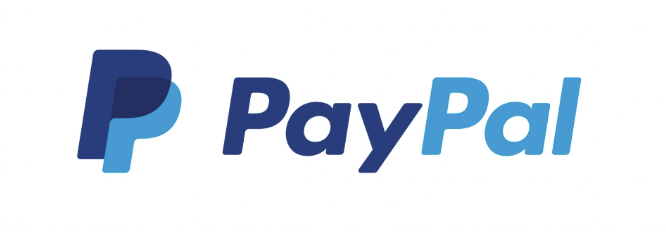
Back to hub
Blog
The 5 Best Online Payment Processing Services in 2025
Published on Jun 18, 2025Updated on Aug 3, 2025
In 2025, accepting online payments is essential for any business. With more than 95% of purchases expected to be made online by 2040 and global transaction value exceeding $20 trillion, choosing the right payment processor impacts customer experience, conversions, and growth. Here are the top 5 services, their features, pricing, and use cases, based on extensive research and analysis.
Criteria for a Good Payment Processor in 2025
Security: PCI DSS compliance, advanced encryption, and AI-powered fraud detection.
Integration: Compatibility with CRM, accounting, and other tools.
Global reach: Multi-currency support and localized payments.
User experience: Seamless checkout to reduce cart abandonment.
The 5 Best Services
1. Stripe: The Go-To for Developers

Stripe is an online payment processing platform known for its flexibility and developer-centric approach, ideal for businesses of all sizes. It allows you to accept payments via credit cards, digital wallets such as Apple Pay and Google Pay, and local methods in over 135 currencies. Stripe stands out for its robust APIs, which facilitate custom integrations with e-commerce sites such as Shopify or custom applications. It supports subscriptions, recurring billing, and offers advanced fraud management and conversion optimization tools. Its interface is intuitive, although more suited to technical users. Stripe is available in over 30 countries and emphasizes security with state-of-the-art encryption.
Features:
Supports 135+ currencies and 46 countries.
AI fraud detection and subscription management.
Easy integration on websites.
Pricing:
2.9% + $0.30 per online transaction.
No monthly fees, discounts for high volumes.
Best for:
International e-commerce.
SaaS with recurring billing.
Businesses with customization needs.
Example: A SaaS company can use Stripe to automatically adjust billing based on customer usage.
2. Square: The All-in-One Solution

Square is a versatile payment solution, perfect for small businesses combining in-person and online sales. Initially known for its mobile card reader, it now offers a complete ecosystem including point-of-sale (POS) terminals, a free online store, and inventory management tools. Square accepts credit cards, digital wallets such as Apple Pay, and offers easy integration with platforms such as Squarespace. Its user-friendly interface and real-time reporting simplify sales management. Square is particularly appreciated for its ease of setup and hardware options for brick-and-mortar businesses. Security is enhanced by automated transaction monitoring.
Features:
Online/offline inventory synchronization.
POS system included and management tools (customers, analytics).
Compatible with Square hardware.
Pricing:
2.6% + $0.10 per in-person transaction.
2.9% + $0.30 online.
No monthly fees.
Best for:
Brick-and-mortar businesses expanding online.
Restaurants, salons, or small businesses.
Example: A coffee shop can manage its in-store and online sales without the risk of overselling thanks to inventory synchronization.
3. PayPal: Trust Above All Else

PayPal is a global payment platform known for its reliability and ease of use, used by millions of users in over 200 countries. It allows you to accept payments via PayPal, Venmo (in the US), credit cards, and even cryptocurrencies in some cases. PayPal is ideal for online businesses and marketplaces, with options such as invoicing, recurring payments, and easy integration with platforms such as Shopify and Squarespace. Its seller protection program offers increased security for eligible transactions. PayPal also offers Braintree, a more advanced solution for high-volume businesses. The interface is accessible, but the developer tools are less sophisticated than those offered by Stripe.
Features
Available in 200+ countries, 100+ currencies.
Express checkout to reduce abandonment.
Cryptocurrency support and buyer/seller protection.
Pricing
2.9% + $0.30 per online transaction.
2.7% in person.
No monthly fees.
Best for
Small international businesses.
E-commerce stores on eBay.
Businesses looking for immediate credibility.
Example: An online store gains customer trust thanks to PayPal's reputation.
4. Shopify Payments: The E-commerce Expert

Shopify Payments is the integrated payment solution for the Shopify e-commerce platform, designed to simplify transactions for merchants using Shopify. It allows you to accept credit cards, digital wallets such as Shop Pay, and local methods such as Bancontact, with support for over 100 currencies. Shopify Payments stands out for its all-in-one dashboard, which allows you to manage products, orders, and payments in one place. It offers seamless integration with Shopify stores and POS devices for in-person sales. The lack of additional transaction fees for Shopify users is a major advantage, although its use is limited to that platform.
Features:
Seamless checkout with no redirects.
Multi-currency support and detailed analytics.
PCI compliance and 3D Secure support.
Pricing:
2.9% + $0.30 (Basic), 2.6% + $0.30 (Shopify), 2.4% + $0.30 (Advanced).
No transaction fees on Shopify.
Best for:
Stores exclusively on Shopify.
High-volume e-commerce businesses.
Example: A Shopify store improves conversions with integrated checkout and accurate analytics.
5. Helcim: Transparency at its best

Helcim is a full-service merchant services provider focused on transparency and flexibility, particularly suited for high-volume businesses. Unlike Stripe or Square, Helcim offers a dedicated merchant account with interchange-plus pricing, providing greater clarity and potential savings. It supports online and in-person payments via POS terminals, payment gateways, and virtual terminals. Helcim includes management tools such as billing, inventory, and customer management, with no monthly fees or long-term contracts. Available primarily in North America, it is ideal for businesses seeking a scalable alternative to large processors. Security is enhanced by advanced protocols.
Features
Interchange-plus pricing (actual cost + fixed margin).
Detailed reports and automatic volume discounts.
No hidden fees.
Pricing
Interchange-plus, variable depending on volume.
No monthly fees.
Best for
High-volume businesses.
Merchants who prioritize transparency.
Example: A growing SME reduces costs with Helcim's automatic discounts.
2025 Trends
Widespread AI: Automation, customer support, and fraud detection.
Voice payments: Projected to reach $164 billion.
Enhanced security: Biometrics and passwordless authentication.
Subscriptions: Growth in recurring payments via open banking.
How to choose
Assess your model
B2B: Need for robust billing.
High volume: Choose interchange-plus.
International: Multi-currency support essential.
Consider the technology
Integration with your existing tools.
Resources for customization.
Prioritize the customer experience
70% of shoppers abandon their carts. A smooth checkout is key.
Plan for growth
Scalability, pricing flexibility, and new features.
Pitfalls to avoid
Hidden fees: Check for additional costs (chargebacks, international).
Complex integrations: Test compatibility with your systems.
Compromises on security: Prioritize PCI DSS and encryption.
Best Practices
Test everything: Payment methods, international transactions, mobile compatibility.
Track KPIs: Conversion rates, abandonment rates, customer satisfaction.
Plan for support: 24/7 for global businesses, technical for integrations.
Conclusion
In 2025, a good payment processor is a strategic partner. Stripe, Square, PayPal, Shopify Payments, and Helcim lead the way with reliability, flexibility, and innovation. Choose based on your model (e-commerce, hybrid, international), technical needs, and growth goals. With the online payments market growing at 11.7% per year, the right choice can transform your business.

Clear, transparent prices without hidden fees
No commitment, prices to help you increase your prospecting.
Credits(optional)
You don't need credits if you just want to send emails or do actions on LinkedIn
May use it for :
Find Emails
AI Action
Phone Finder
Verify Emails
€19per month
1,000
5,000
10,000
50,000
100,000
1,000 Emails found
1,000 AI Actions
20 Number
4,000 Verify
€19per month
Discover other articles that might interest you !
See all articlesBlog
Published on Oct 24, 2025
5 contract management tools that will help your legal team keep their cool in 2025
 Niels Co-founder
Niels Co-founderRead more
Blog
Published on May 17, 2025
Mastering Competitive Analysis: Best Practices & Practical Steps
 Mathieu Co-founder
Mathieu Co-founderRead more
Tips and training
Published on Dec 5, 2022
Few things to avoid in your campaigns
 Niels Co-founder
Niels Co-founderRead more
LinkedIn
Published on Sep 2, 2025
LinkedIn and Beyond: Discover 6 Alternatives to Dripify
 Mathieu Co-founder
Mathieu Co-founderRead more
Software
Published on Nov 5, 2025
4 Translation Management Systems That Actually Make Global Expansion Easy (Not Overwhelming)
 Niels Co-founder
Niels Co-founderRead more
Sales
Published on Jul 14, 2025
Gross Sales vs Net Sales: the Key Differences You Need to Know
 Niels Co-founder
Niels Co-founderRead more
Made with ❤ for Growth Marketers by Growth Marketers
Copyright © 2026 Emelia All Rights Reserved
